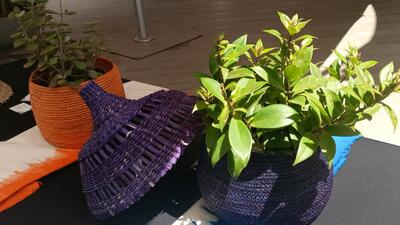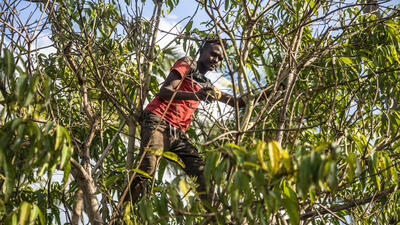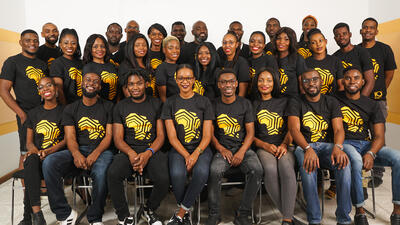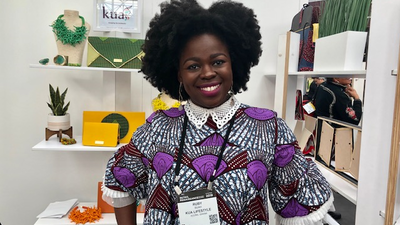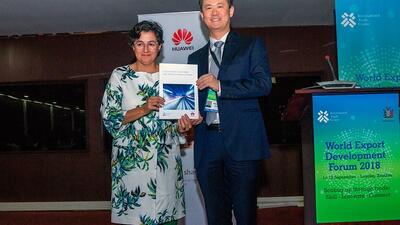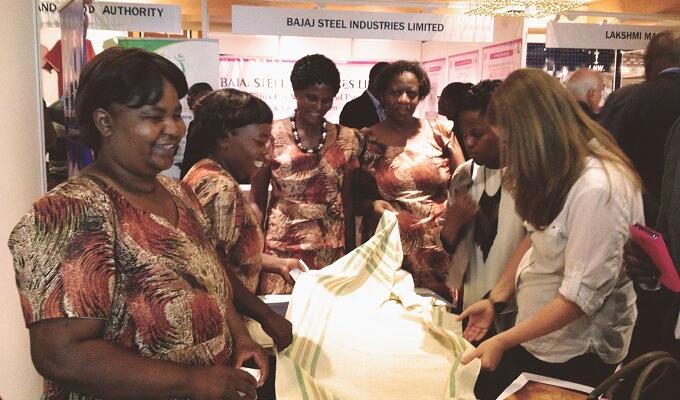

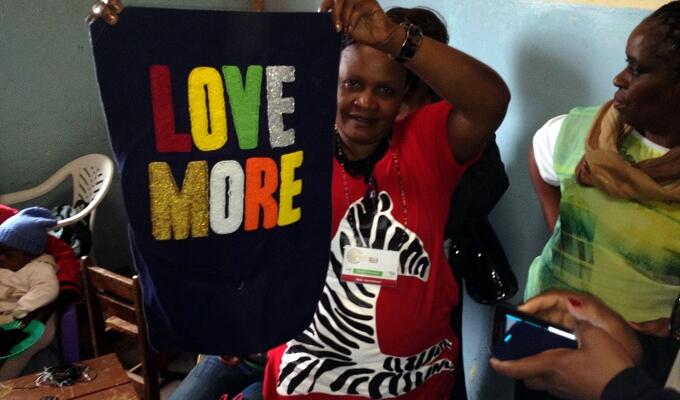
Zambian women weavers showcase handicrafts, meet buyers and visit gender project in Nairobi (en)
This was a busy week for seven Zambian women weavers, who participated in back-to-back events in Nairobi, Kenya, showcasing their products, learning new production and business techniques, and meeting with potential customers and investors. ‘I was about to give up cotton but now I see many business opportunities,’ said weaver Grace Banda from Lusaka at the end of the four days packed with meetings and visits. ‘The participation in these events enables me to better understand the cotton to textile value chain and the role of each player.’
The women weavers began the week by participating in Origin Africa, the largest cotton, textile and apparel event on the continent, which aims to raise awareness of Africa as a business and sourcing destination in the sector. It is organized by the African Cotton and Textile Industries Federation (ACTIF).
‘We increased our knowledge about the textile industry, and feel that we became bigger by being part of this new world for us,’ said Charity Mulenga, a weaver from Lusaka.
They also participated in the regional dissemination workshop organized by ITC on the margins of Origin Africa to share best practices with weavers and cotton farmers from the wider region, and interacted with members of Kenya’s Handloom Weavers Marketing Cooperative in Nairobi to learn more about weaving techniques and product diversification.
‘The ITC dissemination workshop opened our eyes since we did not know anything about cotton ginning and contamination issues for example,’ Mulenga said. ‘Now we can make the link between cotton production, ginning, spinning and weaving.’
‘I have learned how a handloom weaver cooperative works and the positive impact it has on a community, helping their children and alleviating poverty,’ said Fridah Kabazungu, a cotton farmer from Mumbwa.
Finally, the delegation also visited the production sites of ITC’s Ethical Fashion Initiative, which provides work for marginalized people who have a strong desire to change their lives, connecting them to value chains in the fashion industry. These visits provided insights into how economic opportunities can be created for women through gender-focused projects.
The visits were financed by ITC’s “Zambia: Empowering women in the cotton sector” project, part of the Women and Trade Programme. Its objective is to increase business opportunities for women cotton farmers through market and product diversification and value addition. ‘Historically farmers did not get involved in cotton processing, but the majority of the farmers expressed an interest in diversifying and creating artisanal products from their own cotton,’ said Matthias Knappe, who heads ITC’s work in the cotton and textiles sectors. ‘We expect that by the end of the project, farmers will be able to manufacture woven cotton products, diversify their businesses and generate additional income.’
The project is implemented under the EU-Africa Partnership on Cotton. It looks to sustain and expand established collaboration with Asian spinning mills and transform these into long-term partnerships. It also provides support in the areas of cotton quality improvement to reverse the negative perception of African cotton in target markets, and identify buyers who are willing to pay higher prices for clean, non-contaminated cotton. With the support of partnering spinning factories from Bangladesh, 2606 ginnery operators and farmers were trained so far this year, up from 1886 in 2013. These trainings led to significant improvements in cotton quality in terms of lower contamination levels, which in turn led to the sales of over 3,000 tons of higher quality cotton so far this year.






